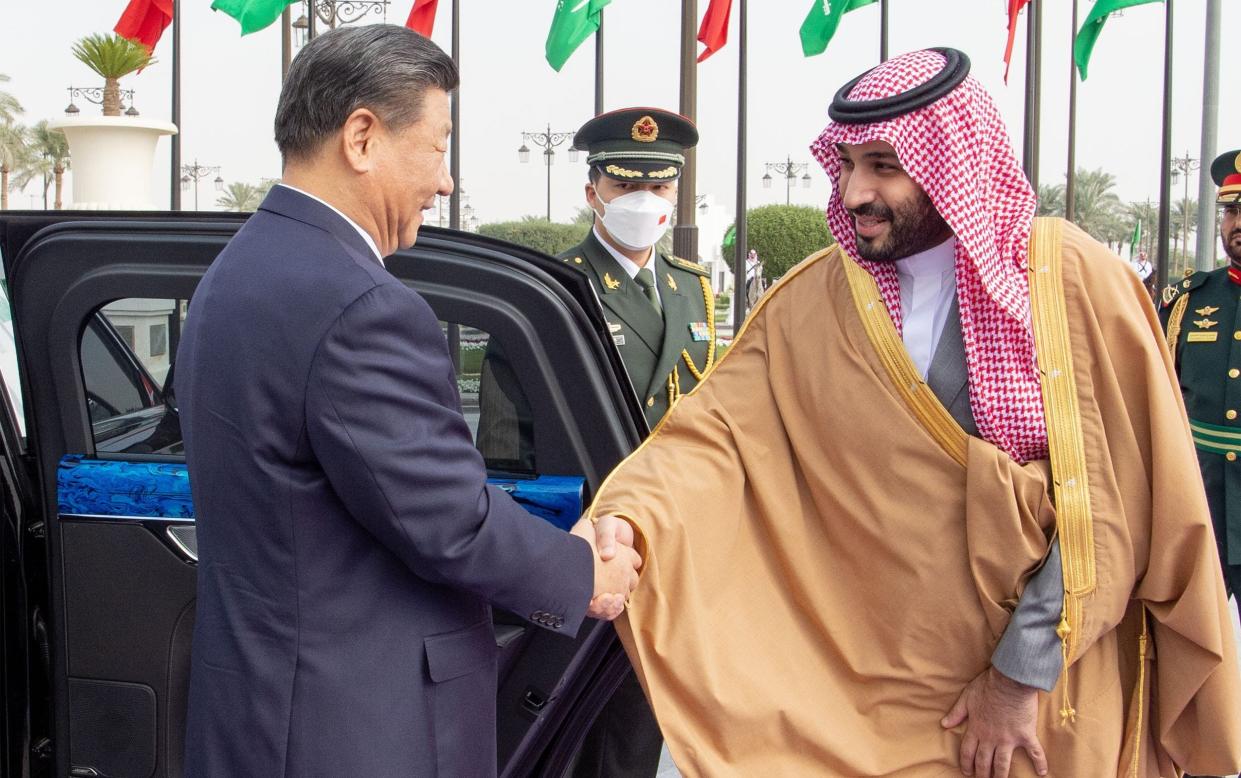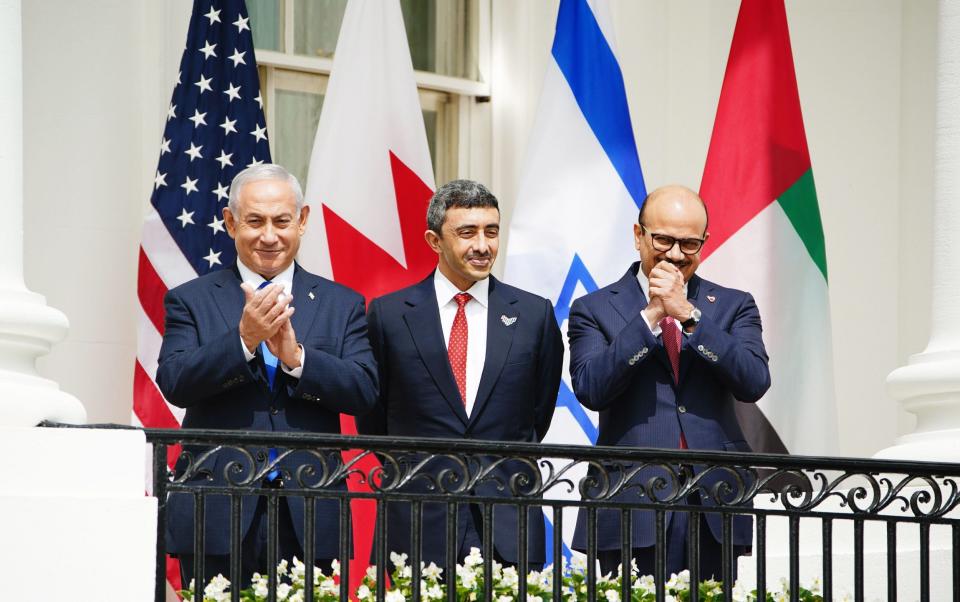China brokers deal for Saudi and Iran to normalise relations in major diplomatic coup

China has brokered a deal for Iran and Saudi Arabia to resume diplomatic relations, in a major diplomatic coup for Beijing that appeared to leave the kingdom’s US ally out in the cold.
The agreement to restore ties, including embassies and missions, “within two months” was reached after four days of meetings in the Chinese capital between delegates from the long-time foes, the two countries said in a joint communique with China.
“The agreement includes their affirmation of the respect for the sovereignty of states and the non-interference in internal affairs,” the statement added.
Hossein Amirabdollahian, Iranian Foreign Minister Hossein Amirabdollahian, later hinted at further news to come, saying all three nations were in support of “more regional steps.”
The breakthrough marked China’s emergence as a key player in Middle Eastern politics as the United States and the West pivot away from the region.
"This is a big deal," said Michael Stephens, an associate fellow at RUSI. "Not because Saudi and Iran have patched things up... but because the US was nowhere near it. Shifts are happening very, very fast.”
‘De-escalate tensions in the region’
The US last night attempted to downplay the significance of the changing global power dynamics.
President Joe Biden told reporters on Friday: “The better relations between Israel and its Arab neighbours, the better for everybody.”
The Biden administration has called China’s rise the single greatest geopolitical threat to the US of the 21st century, though John Kirby, a spokesman for the National Security Council, declined on Friday to criticise its role in brokering the rapprochement.
Mr Kirby rejected the notion that Beijing was filling a void in the Middle East left by the US. “I would stridently push back on this idea that we are stepping back in the Middle East,” he said, adding that Riyadh kept Washington informed of the talks with Iran. “We support any effort there to de-escalate tensions in the region.”
Israel’s opposition leader said the deal represented a massive failure for Benjamin Netanyahu, who has sought to bring Saudi Arabia on side as part of an alliance against arch-enemy Iran under the US-brokered Abraham Accords.
“It’s a collapse of the regional defence wall that we began to build against Iran,” Yair Lapid said on Friday, and “a total and dangerous foreign policy failure of the Israeli government.”
“This is what happens when you are occupied all day by an insane legal project instead of handling Iran.”
It came as diplomats are exerting efforts to end the civil war in Yemen where Iran supports the Houthi rebels and Saudi Arabia supports the exiled government in Aden.
Riyadh cut ties with Tehran in 2016 after protesters attacked its diplomatic posts in Iran following Saudi Arabia's execution of a prominent Shiite cleric, Nimr al-Nimr.

After the United States unilaterally withdrew from Iran’s nuclear deal with world powers in 2018, Tehran embarked on an increased programme of uranium enrichment, increasing tensions across the region as Israel and Saudi Arabia warned of the threat of a nuclear armed Islamic republic.
Tensions have since remained high between the arch rivals – with Riyadh representing the most powerful Sunni state in the region and Tehran the biggest Shiite power – with a devastating attack on the heart of Saudi oil production attributed to Tehran.
“This is a victory for dialogue, a victory for peace, offering major good news at a time of much turbulence in the world,” said Wang Yi, China’s top diplomat.
China has also sought to establish itself as a mediator in the Ukraine war, offering a peace plan to both parties that has so far gained little traction.
Mr Wang said Beijing will continue to play a constructive role in handling hotspot issues in the world and demonstrate its responsibility as a major nation. “The world is not just limited to the Ukraine issue,” he said.
As Mr Biden seeks to pivot to confront a resurgent China, Beijing stepping in to lead diplomatic efforts in the Middle East indicated a major change, said Mr Stephens.
“The US burned its leverage through inconsistency, it’s as simple as that,” he said.

In the first decade of the 21st century, the Middle East was critical for the US as it invaded Iraq and relied on Saudi Arabia for its domestic oil needs.
Today though the US imports less than 10 per cent of its oil from Saudi Arabia, while the vast majority of Beijing’s energy needs are met by the Gulf and Iran.
Successive administrations under former president Barack Obama, Donald Trump and Mr Biden have downgraded the strategic importance of the Middle East, even as Washington continued to lead regional diplomatic efforts, such as the push for normalisation that saw the United Arab Emirates and Bahrain recognise Israel in 2020.

 Yahoo News
Yahoo News 
